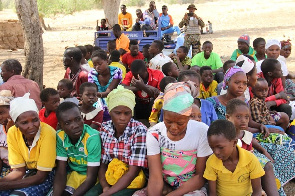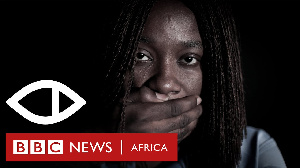Cyclone Idai: ‘Massive disaster’ in Mozambique and Zimbabwe
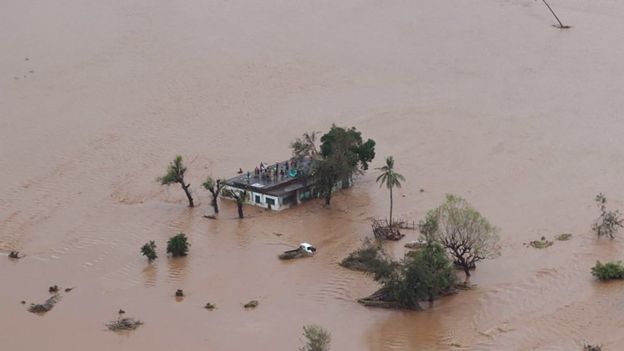
Cyclone Idai has triggered a “massive disaster” in southern Africa affecting hundreds of thousands if not millions of people, the UN has said.
The region has been hit by widespread flooding and devastation affecting Mozambique, Zimbabwe and Malawi.
Mozambique’s President Filipe Nyusi called it “a humanitarian disaster of great proportion”.
He said more than 1,000 people may have been killed after the cyclone hit the country last week.
Idai made landfall near the port city of Beira in Sofala province on Thursday with winds of up to 177 km/h (106 mph).
“This is shaping up to be one of the worst weather-related disasters ever to hit the southern hemisphere,” Clare Nullis, from the UN’s weather agency, told the BBC on Tuesday.
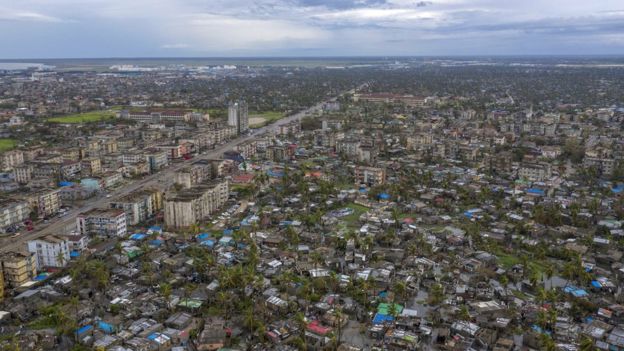 Image copyrightEPA
Image copyrightEPAChristian Lindmeier from the World Health Organization, said: “We need all the logistical support that we can get.”
- If you are in the area and it is safe, email haveyoursay@bbc.co.uk
- Africa Live: Updates on this and other African stories
- In pictures: Cyclone Idai devastation
- School hit by deadly cyclone landslide
Mozambique’s government said the confirmed death toll so far was 200, and 100,000 people needed to be urgently rescued near Beira.
An aerial survey of the province showed that a 50km (30 mile) stretch of land was under water after the Buzi river burst its banks, charity Save The Children said.
The governor of neighbouring Manica province, Manuel Rodrigues, says there is an urgent need to rescue people still trapped, the BBC’s Jose Tembe reports from the capital, Maputo.
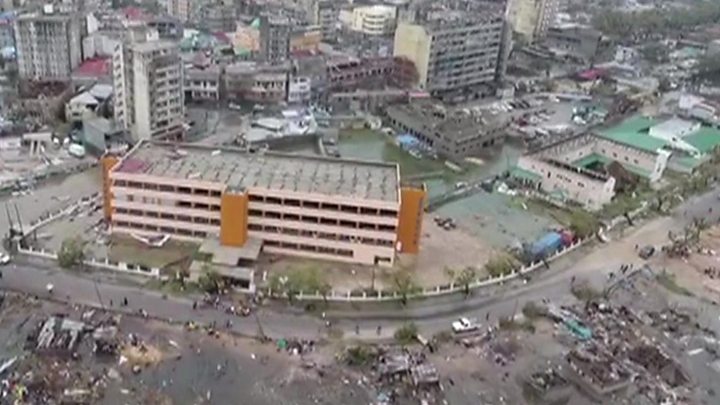
“It’s very sad and very complicated, given what we saw when we flew over the area. We saw people besieged and asking for help,” Mr Rodrigues told reporters.
“They were on top of their roofs made up of zinc sheets. Others under flood waters. We saw many people.
“We can only imagine that they had been there for more than two or three days, without food and without clean drinking water.”

‘It was like a war’
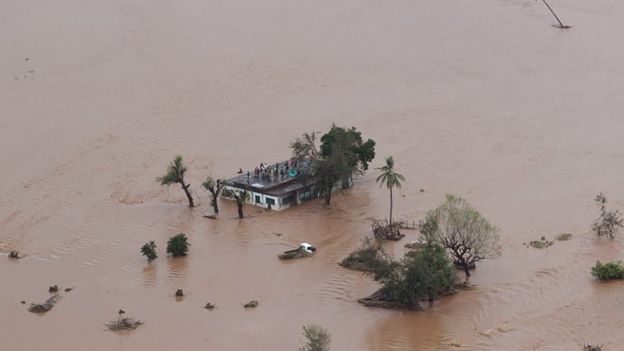 Image copyrightRICK EMENAKET/AFP
Image copyrightRICK EMENAKET/AFPNelson Moda was in Beira in Mozambique when the storm hit. He told his story to the BBC OS radio programme:
It was my son’s birthday on 14 March and we were all at home. In the morning this strong storm started and it was moving the city, the trees, and the houses.
It was like a war. It was horrific. The children were crying and we were hiding in the bathroom. I could see people dying and the house where I live has been destroyed.
There are children who now have no father, no mother, and no home. I saw the city where I grew up being destroyed with my naked eyes.
In Beira, there are no basic services and people don’t know what they’re going to eat or where they’re going to sleep.
I haven’t been able to sleep since that night.

In Zimbabwe, the government says 98 people have been killed and more than 200 are missing.
President Emmerson Mnangagwa said that the government was conducting rescue missions and delivering food.
In the south-eastern town of Chimanimani residents told harrowing stories of how they lost their relatives when the storm hit.
Some rescuers said homes and even bodies were washed away, the BBC’s Shingai Nyoka reports.
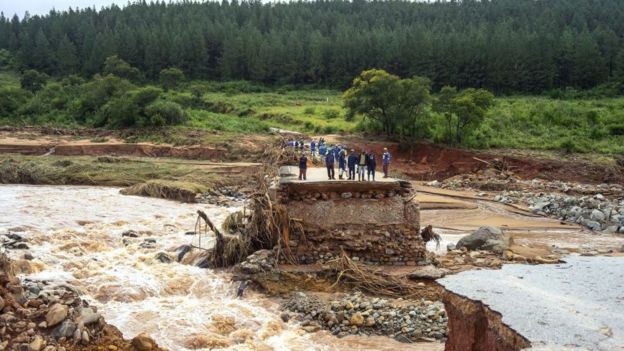 Image copyrightAFP
Image copyrightAFPFloods of up to six metres deep had caused “incredible devastation” over a huge area in Mozambique, World Food Programme regional chief Lola Castro said.
At least 1.7 million people were in the direct path of the cyclone in Mozambique and 920,000 have been affected in Malawi, the UN said.
In Zimbabwe, at least 20,000 houses have been partially damaged in the south-eastern town of Chipinge, 600 others were completely destroyed.
Local officials say they are distributing rice and maize from the national food reserve to those displaced.
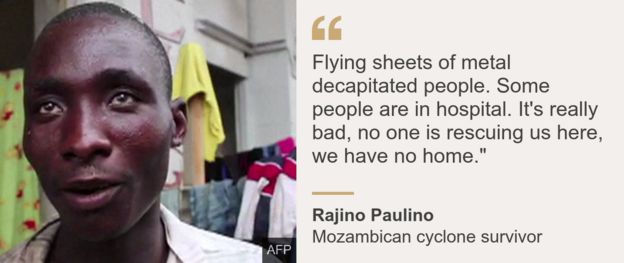

What are the relief teams doing?
In Mozambique, several aid agencies are assisting government efforts in the search and rescue operations and in the distribution of food aid, ReliefWeb reports.
The charity Télécoms Sans Frontières has sent a team to Beira to set up communication networks for humanitarian operations.
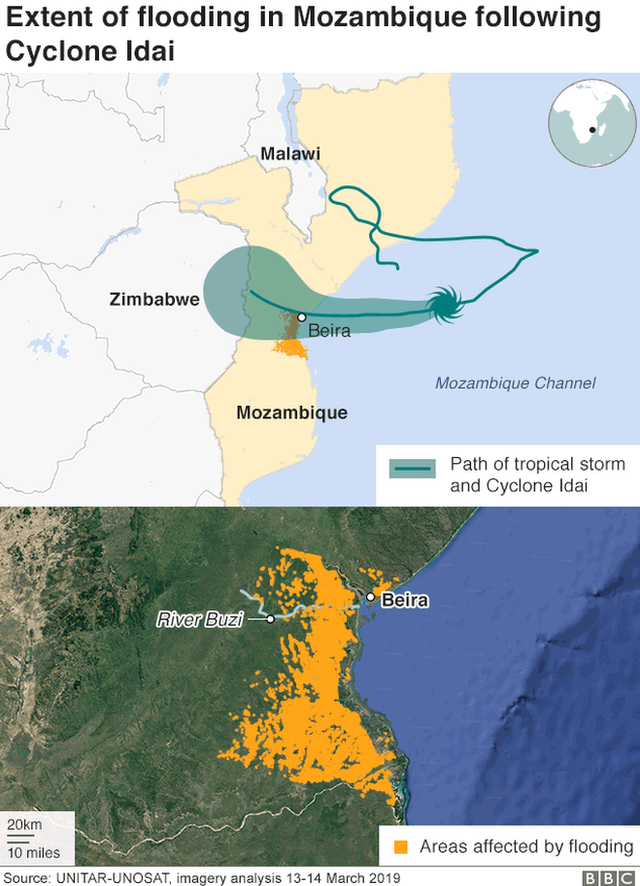

Many aid trucks are stuck on the impassable roads and unable to reach their destinations. The conditions have also limited air operations.
Mozambique’s National Institute for Disaster Management is also housing 3,800 families in Sofala province.
The Red Cross has warned there could be an outbreak of waterborne diseases, including cholera, due to the expected contamination of the water supply and disruption of usual water treatment.
Are you in the area? If it is safe to do so please get in touch by emailing haveyoursay@bbc.co.uk
Please include a contact number if you are willing to speak to a BBC journalist. You can also contact us in the following ways:

